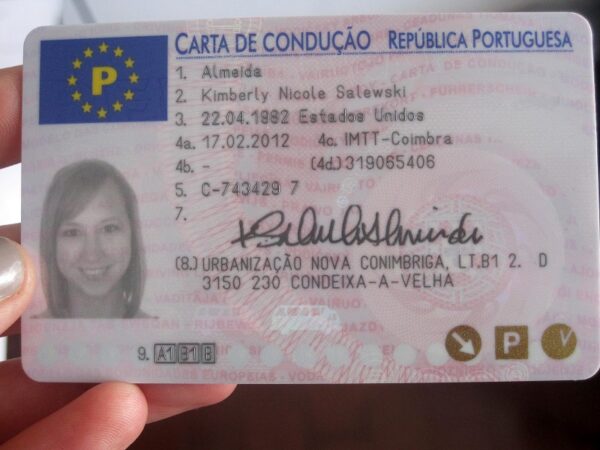The Three Greatest Moments In Buy License History

The Comprehensive Guide to Buying Licenses: What You Need to Know
In numerous fields-- consisting of software application, home entertainment, and intellectual property-- acquiring a license is often a legal necessity. This post will explore what a license is, the different types readily available, the steps necessary for acquiring a license, and factors to consider to keep in mind during the process.
Comprehending the Concept of Licensing
A license is a legal approval granted by the licensor (the celebration granting the license) to the licensee (the celebration getting the license) to utilize or do something that they would not otherwise be allowed to do. Licenses can apply to different domains, consisting of:
- Software: Allowing users to set up and utilize a program.
- Music and Entertainment: Rights to use a tune, video, or other media in a project.
- Intellectual Property: Permission to utilize patented creations or trademarks.
Licensing is necessary for legal security, compliance, and allowing developers to monetize their work.
Types of Licenses
1. Software application Licenses
Software accredits define how a product can be used, dispersed, and modified. Common types include:
- Freeware: Software that can be utilized at no charge but comes with constraints.
- Shareware: A trial variation for screening before buying the complete software.
- Exclusive License: The user is enabled to use the software under particular conditions however does not have ownership.
2. Innovative Licenses
Innovative licenses prevail in the arts and media sectors. They consist of:
- Public Domain License: Content not protected by copyright and can be used easily.
- Imaginative Commons: Various licenses that enable creators to communicate which rights they reserve and which they waive.
3. Intellectual Property Licenses
These licenses relate to patents, trademarks, and copyrights.
- Unique Licenses: The licensee has the sole right to utilize the copyright.
- Non-exclusive Licenses: Multiple parties can use the same intellectual property.
The Process of Buying a License
Buying a license might seem difficult, however breaking down the process into workable steps can simplify it substantially.
Action 1: Identify Your Needs
Before buying a license, assess your specific needs. Consider the following questions:
- What is the purpose of the license?
- Which type of license is appropriate for your job?
- Are there any limitations you need to be familiar with?
Action 2: Research Available Licenses
As soon as your needs are developed, research study your choices. Put in the time to compare different licenses in terms of:
- Cost
- Conditions
- Evaluation process and renewal procedures
Step 3: Communicate with the Licensor
Once you discover a potential license that meets your needs, communicate with the licensor. This might involve:
- Sending a query about the license.
- Requesting a copy of the licensing agreement.
- Negotiating terms, if possible.
Step 4: Review the Legal Documentation
Before case, it's vital to read and understand the licensing arrangement. This may require speaking with lawyers to make sure that all stipulations are understood and appropriate.
Step 5: Make the Purchase
When all set, continue to acquire the license. This usually involves completing documents and making a payment through the favored payment approach.
Action 6: Maintain Records
After purchasing the license, preserve digital and difficult copies for your records. It's essential for proving your right to utilize the certified material.
Secret Considerations When Buying a License
When participating in the process of buying a license, keep the following important considerations in mind:
- Legitimacy of the Licensor: Ensure the business or specific giving the license is legitimate to avoid rip-offs.
- Regards to Use: Clearly comprehend how you are allowed to use the certified product.
- Renewal Policies: Be aware of license expiration and renewal requirements.
- Prospective for Future Fees: Look out for any hidden fees that might develop later.
Regularly Asked Questions (FAQs)
Q1: Do I require a license totally free software?A1: While some complimentary software does not need a license, others might have particular licensing terms you'll require to follow. Q2: Can I modify certified software?A2: Modification depends upon the type of license. Make sure to examine the
terms. Q3: What happens if I use licensed material without permission?A3: Unauthorized use may lead to legal actions, consisting of fines and claims. Q4: Is it possible to get a refund after acquiring a license?A4: Refund policies differ by licensor, so constantly check in advance.
Q5: Where can I discover trusted licensors? Cartão Expresso De Portugal : Research online reviews, forums, or market suggestions to find respectable licensors. Browsing the world of licensing
can seem complex, but understanding the types
of licenses offered and the process of acquiring one can significantly simplify your experience.
By taking the essential steps and thinking about all pertinent elements, people and companies can effectively get licenses that secure both their interests and those of the original developers. Ultimately, correct licensing cultivates creativity and innovation while supplying legal security in a continuously evolving landscape. Summary Table: Key Steps to Buy a License Step Description Determine Needs Determine what kind of license fits your particular use. Research study Options Compare different licenses throughout crucial criteria. Interact Go over with the licensor and work out terms. Evaluation Documentation Understand all terms and conditions thoroughly. Make thePurchase Total payment and get the license. PreserveRecords Keep copies ofall license documents for your records.Taking these stepswill result in an effective licensingexperience for anyuser or creator desiring to safeguard their possessions whileappreciating intellectual property rights.

